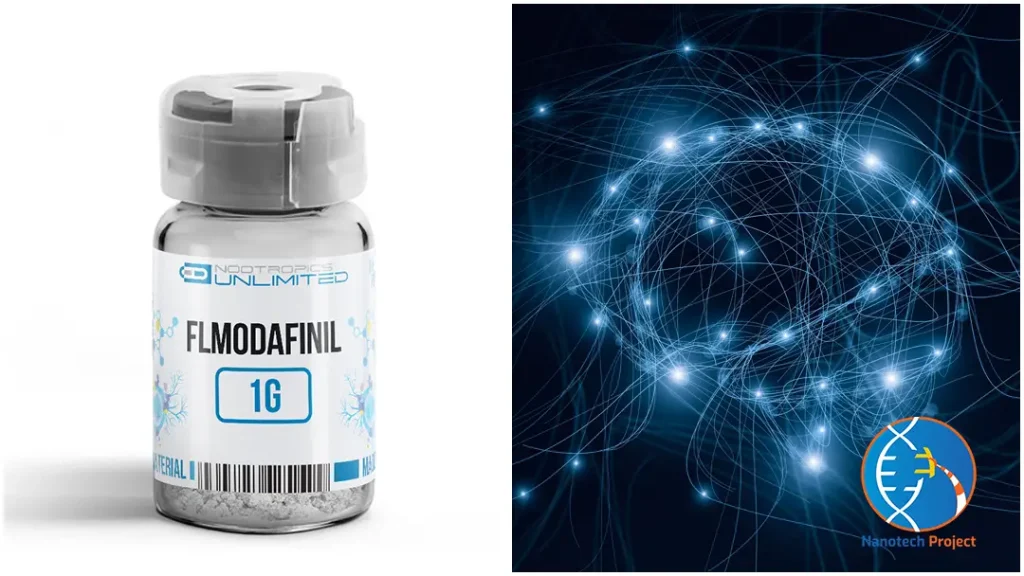Can’t sleep well?
Are you thinking of using sleep aids to manage your sleep disturbances?
You might be considering combining melatonin with hydroxyzine. Before you do this, know that there might be some information you need to consider.
This post is designed to help you understand the potential risks of combining melatonin and hydroxyzine. These drugs affect the nervous system. Also, they may lead to some serious side effects. Learn more about the details in this comprehensive guide.
Is It Safe to Combine Melatonin and Hydroxyzine?
Combining melatonin and hydroxyzine can be effective for managing conditions like insomnia and allergies. However, it is essential to understand the potential drug and food interactions.
Both substances affect the central nervous system. This effect may lead to drowsiness and other side effects. Thus, combining these two should be done with the advice of a medical doctor or pharmacist.
When taking hydroxyzine and melatonin together, several factors come into play:
Potential Drug Interactions
Hydroxyzine can interact with other drugs, particularly other antihistamines and similar prescription medicines. Hydroxyzine can also interact with substances and supplements that produce sedative effects. Alcohols and certain antidepressants are good examples.
Melatonin also has drug interaction warnings. It may interact with blood thinners, birth control pills, and beta blockers. Potential side effects may occur from every particular drug interaction.
Therapeutic Duplication Warnings
Both hydroxyzine and melatonin aim to manage sleep or anxiety symptoms. Taking them together may lead to excessive drowsiness. The combination also could complicate therapeutic outcomes if not monitored carefully.
Guidance from a Healthcare Professional
It is essential to consult a healthcare provider before doing mixtures of medications. These medical individuals may have a drug interaction list. Such a med list will help them identify what could lead to some deadly drug interactions.
A healthcare professional can provide personalized advice. This is based on the following:
- Health history
- Allergic reactions
- Current medications
- Overall treatment goals.
Understanding Hydroxyzine and Melatonin
Hydroxyzine and melatonin are substances that are often considered to induce sleepiness. These are typically considered as sleep aids by many. However, these two serve different functions and have distinct properties.
What is Hydroxyzine?
Hydroxyzine is an antihistamine medication. It is also known as an H1-blocker, which is part of a class of medications that can treat various conditions. A proper dose of hydroxyzine is believed to manage the following:
- Allergy relief: Hydroxyzine blocks histamine. Such interactions report reducing symptoms of itching and swelling.
- Anxiety and Tension: Certain medications can help with anxiety and tension. Hydroxyzine possesses sedative properties that help alleviate both.
- Nausea and Vomiting: Hydroxyzine is also effective in managing these symptoms. This is especially true if nausea and vomiting are related to medications and conditions.
Pharmacokinetics:
- Onset and Duration: Hydroxyzine is absorbed quickly when taken orally. The effects may start within 15 minutes to 1 hour. The therapeutic effects generally last for 4 to 6 hours.
- Half-life: The medication has a half-life range of 14 to 25 hours. It is metabolized in the liver into active metabolites.
- Dose: The dose of hydroxyzine depends on the condition being treated. Individual patient factors are also considered.
- Hydroxyzine food interaction: Avoid grapefruit and grapefruit juice when taking hydroxyzine. Alcohol consumption is also not advised.
What is Melatonin?
Melatonin is a natural hormone produced by the pineal gland. Melatonin blood levels change according to the time of the day. It is famous for playing a key role in regulating the body’s sleep-wake cycle. It is widely used as a sleep aid and in melatonin therapy to manage the following sleep-related issues:
- Insomnia: Melatonin’s most widely known use is to promote sleep.
- Jet Lag: Melatonin also assists in adjusting to new time zones
- Shift Work Sleep Disorder: Melatonin can help individuals who are working non-traditional hours.
Pharmacokinetics:
- Onset and Duration: Melatonin can reach its peak concentration in the bloodstream within 15 minutes to 3.5 hours.
- Absorption: Melatonin is best taken with an empty stomach for faster onset of effects.
- Doses: Effective melatonin doses vary based on the condition being treated.
- Melatonin food interaction: It is believed that excessive caffeine consumption and smoking can alter levels of melatonin in the blood.
In summary, while hydroxyzine uses include allergy relief and anxiety reduction, melatonin therapy primarily addresses sleep issues. Always consult a healthcare provider to determine the best approach for your needs. These medical professionals have a drug list for drug interaction classification. The latter is essential to determine the possible side effects of hydroxyzine and melatonin.
Side Effects of Hydroxyzine
Hydroxyzine is a versatile medication used for treating allergies. It may also help with anxiety, nausea, and sleep disturbances. While it is effective for such purposes, hydroxyzine may still cause a range of adverse effects. Always read a product’s medical disclaimer to determine its limitations and severe side effects.
Common Side Effects
- Drowsiness: One of the most common side effects of hydroxyzine is drowsiness. The sedative effects of the drug may also lead to dizziness.
- Dry mouth: Hydroxyzine can reduce saliva production, leading to dry mouth. This may bring inconvenience to some patients.
- Blurred vision: Some users may have blurred vision because of the drug’s anticholinergic effects. This can affect visual clarity.
- Constipation: Hydroxyzine can slow down the movement of food across the digestive system. Thus, constipation may occur.
- Confusion: For elderly patients, hydroxyzine may lead to cognitive issues. This is one of the nervous system side effects of the drug for older individuals.
Hydroxyzine Drug Interactions
Hydroxyzine may lead to moderate drug interaction. In some cases, it can also lead to some severe drawbacks.
- Other sedatives: Combining hydroxyzine with other sedative medications may lead to an interaction risk. These include benzodiazepines or alcohol. The outcome would be excessive sleepiness.
- Certain antidepressants: Hydroxyzine may also interact with certain antidepressants. This may lead to altered drug efficacy.
Consulting a Healthcare Provider
Before starting hydroxyzine, consult your healthcare provider first. This is recommended if you are already taking other medications. They may refer you to an alternative drug. Healthcare professionals are also equipped with a drug interaction checker. This professional interaction data can help them determine if hydroxyzine is your best medication.
Side Effects of Melatonin
While melatonin is generally considered to be safe, it may still result in certain side effects:
Possible Side Effects
- Drowsiness: Melatonin may lead to drowsiness during the day. This can be the outcome of too much melatonin dosage.
- Dizziness: Some individuals may experience dizziness after taking melatonin. This may affect balance and coordination.
- Headaches: Melatonin intake may occasionally lead to headaches. This could be related to the substance’s effect on sleep patterns and hormonal changes.
- Nausea: Discomfort of the digestive system, such as nausea, is another possible side effect. This side effect is usually mild but can be bothersome.
Melatonin Drug Interactions
Below are the drugs that may interact with melatonin use:
- Blood thinners: Melatonin is known to interact with anti-coagulants or blood thinners. This may take a toll on melatonin’s efficacy.
- Anti-convulsant: Melatonin can also interact with anti-convulsant medications. The outcome could be altered seizure control.
- Caffeine and alcohol: These substances can affect melatonin’s effectiveness. They may also disrupt sleep patterns.
- Birth control pills: Melatonin may interact with contraceptive pills, changing its mechanism of action.
Consulting a Medical Doctor
Consult with your doctor if you are planning to take melatonin. By doing so, you can receive tailored medical advice. Your medical doctor can adjust your medication and perform an edit list of the possible side effects of melatonin.








